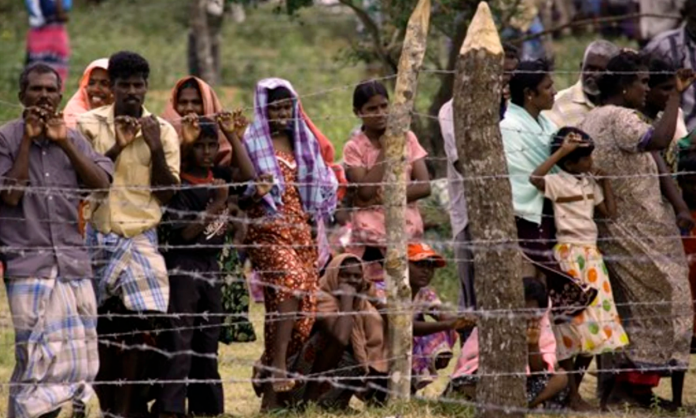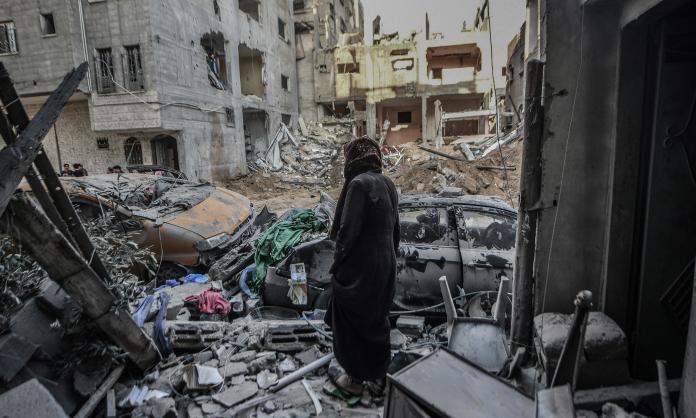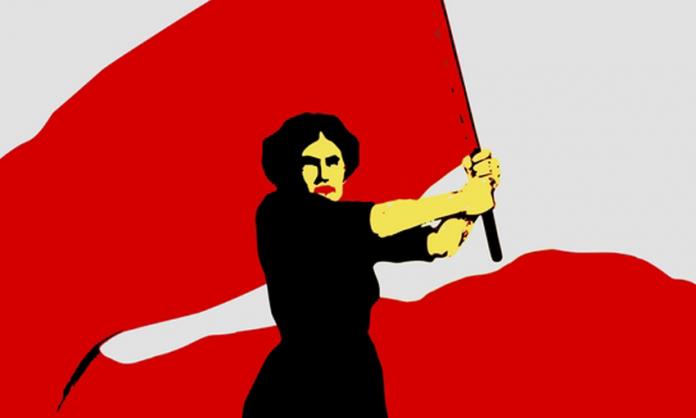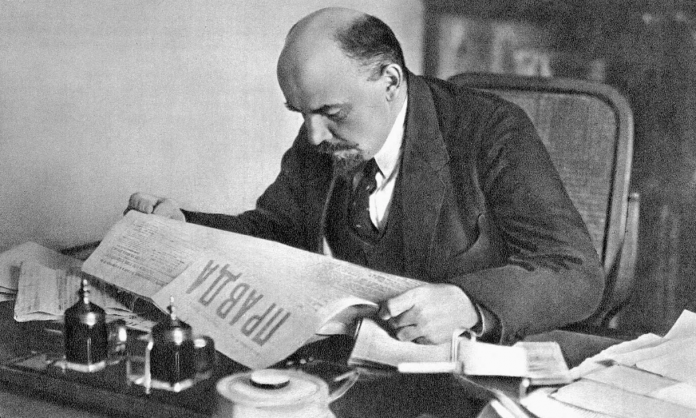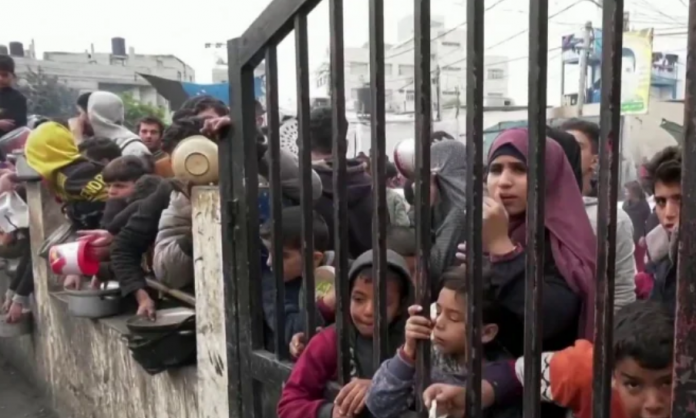From the moment Marx and Engels urged workers of the world to unite at the climax of the Communist Manifesto, the goal of international revolution has been at the core of Marxist politics.
International revolution isn’t just a romantic dream, but an urgent necessity. It’s the only means by which capitalism can be permanently uprooted and replaced with socialism. This is because capitalism, unlike previous class societies, is a globally integrated system. “For the first time in history”, wrote British Marxist Colin Barker of this phenomenon, “capitalism has created a genuinely world society, where all our lives are entwined together in a common history and a common fate”.
Capitalism has linked every nation in a global chain of production. Take your mobile phone for example. It was likely assembled in China, using computer chips manufactured in Taiwan, powered by coal exported from Australia and produced with minerals mined in the Democratic Republic of Congo according to specifications developed in Europe or the United States. No single country produces all the things necessary to satisfy its population’s needs, unlike the various forms of society that came before capitalism, which were mostly self-sufficient and organised around small local economies.
Capitalism was established as a world system through immense robbery and violence—from the international slave trade, which fuelled the Industrial Revolution, to the murderous colonisation of what is now Australia. That same violence is today used by states to defend their imperialist interests, and discipline any movements that get in their way. Movements that aspire to national independence or that back left-wing reformist governments have been demolished with the aid of the great capitalist powers countless times in the past century, from the overthrow of the Allende government in Chile in 1973 to the 2019 Bolivian coup.
Revolutionary movements that attempt to overturn the entire capitalist system face a much more severe response. This was confirmed by the defeat of the Russian Revolution. In 1917 workers, radicalised by years of war and economic crisis, overthrew the tsarist regime and eventually took power into their own hands. In response, the capitalist powers of the world united to crush the workers’ state, in alliance with reactionaries who wanted to restore the tsarist regime. Unless revolutions can spread internationally and challenge the imperialist powers that have an interest in destroying them, they will be crushed.
A heroic effort by Russian workers and peasants fought off 16 foreign invading armies, but at a great cost. The working class was decimated, the factories were depopulated, and the radical working-class democracy that had been built withered. The isolation and poverty imposed on Russia made building socialism an impossibility, and a new Stalinist regime emerged that reversed most of the gains of the revolution.
Because Russian revolutionary socialists who pinned their hopes on spreading revolution across the globe were ultimately defeated, their example is used by defenders of capitalism as a cautionary tale today: that a worldwide revolution against the system is an impossible dream.
But capitalism’s global nature means that revolts tend to spread across national borders. Workers today share increasingly similar experiences: conditions of work, forms of consumption, lifestyles and political cultures. And the global integration of production serves to transmit struggle from one country to another. In 1974, for instance, resistance to the brutal military dictatorship in Chile spread to East Kilbride, Scotland, of all places. Workers at the Rolls Royce factory there learned that the engines they were repairing were being used by the Chilean air force to drop bombs on workers resisting the coup. They downed tools and refused to work on the engines, keeping them out of the hands of the military junta for four years.
While nationalism still has a powerful hold on the consciousness of many, it’s increasingly clear that the real line of polarisation across the globe is between the minority ruling class and the majority working class. And when revolts break out in one part of the world, people can identify with the causes and motivations of their struggles, and draw comparisons with their own situation. “Languages remain different,” observed UK Marxist Chris Harman in 1992, “but what they say is increasingly the same”. Harman’s words ring true in every wave of political radicalisation.
1968 is remembered as a year of global revolt, when millions of workers, students and oppressed people drew inspiration from each other’s movements. Activists in the US were radicalised by the heroic resistance of the Vietnamese people to American imperialism. Irish civil rights activists emulated the militant politics of the Black Panthers. When students and workers united to launch a massive general strike in France in May, it taught student radicals in Australia that they needed to link up with the power of the organised working class in order to win.
The movements of 1968 united people across superficially very different societies. For decades, Cold War common sense had dictated that the greatest divide on the planet was between Western liberal capitalism and Stalinist “Communism”. But in 1968, both sides of the iron curtain exploded in revolt. The triggers for the struggles may have been different, but they were all responses to similar issues: inequality, exploitation and war, imposed by monstrous bureaucratic states.
In 2011, a poor Tunisian street vendor set himself alight to protest against police harassment. Within days, his act had inspired anti-government protests across the country. Within weeks, the protests escalated into a regional revolt that challenged regimes across the Arab world. One small act tapped into resentment against inequality, unemployment and state violence that engulfed an entire region. The radical wave spread even further: at a massive demonstration against an anti-union bill in the US city of Madison, Wisconsin, a man held up a poster with a picture of Egyptian dictator Hosni Mubarak beside Republican Governor Scott Walker. The caption read: “One dictator down. One to go”. The Arab revolutions went on to inspire the Occupy movement, which spread to more than 80 countries.
Today, more than ever, insurgent social movements and working-class uprisings are spurring action in other parts of the world—from Hong Kong to Chile, from Lebanon to France. One placard at a memorial for protesters murdered while resisting the military coup in Myanmar took up Marx’s incitement: “Workers of the world unite, you have nothing to lose but your chains”.
While the Russian Revolution is cynically held up by capitalist ideologists as the ultimate argument against international revolution, it actually proves the opposite. It shows that the goal is not only necessary, but also that it’s possible. The news of workers seizing power in Russia, overthrowing their capitalist government and declaring their withdrawal from WWI, created shock waves across the planet. Workers in Germany rose in revolt a year later, ending the war for good and building soviets, a form of radical working-class democracy inspired by the Russian example. This was followed by uprisings in France, Italy and Hungary.
The revolutionary wave spread further. A classified British government report from 1919 noted a “very widespread feeling among workers that thrones have become anachronisms, and that the Soviet may be the best form of Government for a democracy”.
The rising tide of radicalism had an impact in Australia too. Meatworkers in the Queensland city of Townsville donned red jumpers, stormed the local police station to free jailed unionists, and placed the city under workers’ control. The editor of the conservative Townsville Daily Bulletin lamented: “Townsville for the last year or so has been developing Bolshevism ... the mob management of affairs in this city, differs very little, from the Petrograd and Moscow brand”.
The Russian Bolsheviks, the revolutionary working-class party that led the revolution to victory in 1917, didn’t just passively wait for revolutions elsewhere. They actively organised to spread the revolt. In 1919, they established the Communist International, an organisation for debate, discussion and coordination between different revolutionary workers’ parties. Revolutionaries in Russia, Italy, France, Germany, the US, Australia and elsewhere attempted to clarify and develop a strategy for overthrowing capitalism everywhere. In none of these countries was there a party like the Bolsheviks, steeled in years of organising working-class struggle to overthrow the state, and capable of leading a revolution. But for a number of years, workers came close to overthrowing capitalism in several countries.
In periods of stability, when social conservatism dominates, international revolution can seem like a pipe dream. Defenders of the status quo actively work to reinforce this illusion. But history proves that the crises that the system generates are international, and that they will inevitably provoke international resistance.
Capitalism is a global system. It requires a global movement to tear it up, root and branch. But it also makes global revolution more possible, and more likely. The most important thing that socialists can do, whether you live in Hong Kong or France, Myanmar or Australia, is to get stuck into organising for it today.





